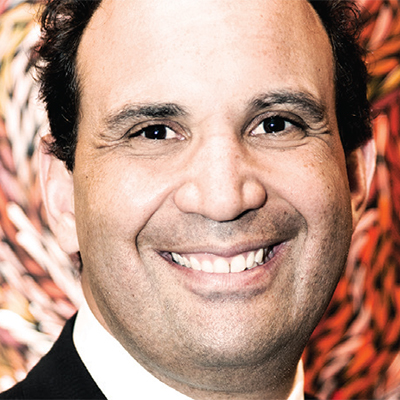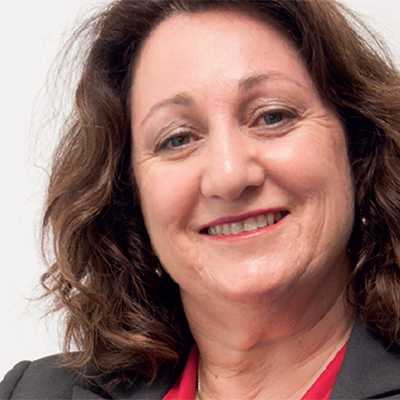The mania around cryptocurrency has captured the attention of trustees as a possible new investment opportunity for SMSFs, however, strong due diligence has been stressed, with some experts advising to avoid it altogether. Krystine Lumanta reports on the SMSF potential of this emerging asset class.
The arrival of disruptive technology blockchain has enabled the creation and existence of a new age of digital currency. Blockchain is the digitised, decentralised public ledger of all cryptocurrency transactions and, essentially, the underlying technology of these assets.
The first digital currency, Bitcoin, prompted more names to enter the market, including Ethereum, Ripple, Bitcoin Cash and Litecoin, which are now all very familiar, but only represent the tip of the iceberg. According to CoinMarketCap, 1563 cryptocurrencies existed as at 10 April.
Australia’s first crypto-focused managed fund was launched this year, the Triple A Partners EKT Active Fund, which taps into the rapidly growing crypto hype within a traditional fund structure, providing investors with a layer of security and liquidity.
Digital Currency Holdings is acting as the adviser on the fund, owned by former ANZ head of global markets Steve Bellotti.
Following on, Australian crypto-fund Apollo Capital announced its launch and acceptance of investment applications, with a minimum buy-in of $50,000.
The World Economic Council has predicted by 2027, 10 per cent of the world’s gross domestic product (GDP), forecast to be $111 trillion, will sit on blockchain or blockchain technologies.
The ATO released tax determinations 2014/25 and 2014/26 back in 2014 defining cryptocurrencies as capital gains assets, not money, and as such to be treated accordingly.
In March, the regulator issued cryptocurrency guidance for SMSFs on regulatory compliance.

“My gut feeling is that anyone investing in cryptocurrencies through their SMSF is exceptionally self-directed or they’ve had a lightbulb moment and believe they’re a sophisticated investor in their own mind.”
Andrew Heaven, WealthPartners Financial Solutions
So with blockchain technology market cap set to soar into the tens of trillions, the use of cryptocurrencies by SMSFs cannot be disregarded. It will require advisers and auditors, in particular, to get across the considerations for their clients and funds to ensure any crypto-investments mean the fund still fully complies with the Superannuation Industry (Supervision) (SIS) Act.
Prudent investing?
For advice practice WealthPartners Financial Solutions, cryptocurrency has been a theoretical exercise.
“No client we’ve engaged with around SMSFs has said they want to buy cryptocurrency in their super fund,” WealthPartners principal and financial adviser Andrew Heaven says.
“That’s not to say they haven’t, but maybe it’s that people want to try it in their own name first as a bit of a punt and if they feel comfortable, then those specific SMSF questions will come.
“There’s a big kicker there that the trustee of a super fund must demonstrate due care and regard, and I personally think Bitcoin fails that – you must demonstrate due care and diligence with all investments, but how do you do that with Bitcoin?
“So the philosophical question is whether or not Bitcoin is a prudent SMSF investment, especially for those in retirement age?”
Heaven was one of the first in the industry to publish hygiene factors and pitfalls for SMSFs specifically.
“It’s extraordinarily volatile and a pretty dangerous space to be playing in. I gather that most of the advisers don’t want to engage in it unless their client is very insistent,” he says.
“If you’re in your 30s or 40s and have a discreet, small asset allocation, maybe you can consider it an alternative asset class. That’s probably a more compelling scenario than someone who’s 60 and approaching retirement.
“My gut feeling is that anyone investing in cryptocurrencies through their SMSF is exceptionally self-directed or they’ve had a lightbulb moment and believe they’re a sophisticated investor in their own mind.”
A crypto-broker’s perspective
Bitcoin Trader is a cryptocurrency brokerage firm specialising in Bitcoin and cryptocurrency investment for SMSFs. It recently announced a partnership with Xpress Super.
According to Bitcoin Trader partner manager Warrick Pleash, the emergence of cryptocurrencies in the sector has been a bottom-up development, driven by trustees asking their advisers how to legally include them in an SMSF.
“Because it’s a new asset sector, there is volatility and the standard deviation volatility is much higher than what you can expect from other asset sectors and we just don’t think it’s a good idea, from a prudent point of view, to overexpose yourself to the sector,” Pleash says.
“We’d suggest 10 per cent to 15 per cent of your super portfolio into crypto. But some clients have come to us and said they want 40 per cent or 50 per cent.
“People have also asked us what they should do for diversity because they can decide to put a sector in their portfolio, but how many coins do you buy?”
He points out crypto has become an asset class in its own right, viewed as digital gold.
“Bitcoin, as an example, hasn’t embraced itself into the community as a currency, as in an exchange for buying a cup of coffee. But it has embraced itself as being an asset class because it has value,” he says.
“Why does something have value? Because of the intrinsic belief in what the item is – vacant land, diamond rings, quality shoes, Bitcoin shares, et cetera. They all have value because of consensus.
“Given that Bitcoin’s value has risen so aggressively over the last four or five years, there’s been a growing, agreed consensus.”
The rise of cryptocurrencies has resulted in initial coin offerings (ICO), described as controversial crowdfunding due to the unregulated means of raising funds for the latest cryptocurrency venture.
Australia’s first ICO by Perth-based solar energy trader Power Ledger raised $34 million.
The Australian Securities and Investments Commission has stepped in with more guidance on ICOs, mainly emphasising they are not the same as initial public offerings, which offer investors legal rights and protections.
Pleash explains the ICO’s original intention: “The idea of an ICO is to buy a token, which will increase in value because it’s being used for a particular app that’s being developed, for example, and also the token will be listed on a major exchange in the crypto space, making it more easier to trade and, again, should boost its value.”
But he warns SMSFs the opportunity has been diluted, turned into a quick way to make money.
“A lot of people’s ideas don’t stand up to scrutiny in terms of being a valid business model so it’s become a cash grab in the token space – to go four or five times its value, to then be sold short term,” he says.
“There are some exceptions, but a large part of the market is being built on that basis at the moment. It’s highly speculative and high risk.”
Recognising regulated vehicles
Digital Currency Holdings chief executive Steve Bellotti believes it’s important to recognise the different structures cryptocurrencies are evolving into, such as the EKT Active Fund.
“One thing to stress is that there is a way to invest in crypto and then there’s the other way. I think most people are doing it the riskier, old-fashioned way and what I mean by that is they keep money in their crypto, their private key and wallet they exchange in,” Bellotti says.
“However, legal vehicles like ours are being set up, though it’s still very early days.
“We’re one of the very first in the world to have gone to the trouble of setting up third-party custody, admin and audit. It’s easier said than done and a lot of players don’t want to be the custodian, administrator and the auditor of the crypto.”
Bellotti believes the regulatory framework is also picking up.
“There are more and more of what I’d call triple A-rated or very robust gold-plated investment vehicles being set up to cater for not only super funds and institutions, but for ultra-high net worth family offices as well,” he notes.
“Most, if not 99 per cent of crypto-funds – they’re referred to as either crypto-funds or crypto-assets rather than cryptocurrencies – have no third-party custody, no third-party administration or no third-party audit, and no independent board.
“They’re really very much backyard set-ups that don’t have the traditional legal vehicle set-up or structure that you’d see for fixed income or commodities or equities or currencies.”
He says this combined structure and oversight is integral to the success of crypto-funds.
Smarter people are coming into the space now from “all walks of life”, he adds.
“From technology, investment, private equity, hedge funds, venture capital, Wall Street-type players, et cetera – everyone’s waking up to the fact that it’s not just money that’s coming into the space, but brains,” he says.
“That’s been a massive change.”
Commenting on security, Bellotti says trustees must understand how the private key works and where it’s stored.
“You’re supposed to study up on what your redundancy plans are if you lose your key. What if you get hit by a bus and you’ve got a million dollars sitting in crypto but nobody knows?” he poses.
“This risk reinforces the need to seek out people who have professional solutions to that.”
An auditor’s view
ASF Audits has fielded inquiries from advisers asking whether their SMSF clients can invest in Bitcoin.
“It’s been called a lot of things from being a bubble to a Ponzi scheme. The best definition I’ve heard for Bitcoin is collective delusion,” ASF Audits technical services executive general manager Shelley Banton says.
“There were more questions when the price of Bitcoin was on the rise, but they seem to have levelled off.
“The price of Bitcoin has steadily come down from its high of US$19,186 in December 2017 to its price of US$8,572 [at March 2018].”
Banton reveals from her conversations within the industry, most advisers are risk-averse with respect to cryptocurrency, are treading cautiously and recommending their SMSF clients not invest in this asset.
ASF has already audited a few funds with cryptocurrency as an investment.

“It’s been called a lot of things from being a bubble to a Ponzi scheme. The best definition I’ve heard for Bitcoin is collective delusion.”
Shelley Banton, ASF Audits
“All of these initial investments were immaterial to the value of the fund and were in funds with large, diversified portfolios,” Banton reveals.
“I am sure we will see more funds with cryptocurrency come through in the 2018 audits, but we would expect the total number of funds to be very small.”
The main question coming from SMSF advisers is around what documentation will need to be produced at audit time.
“Essentially the same type of evidence as other assets will be required to verify the asset, confirm ownership and the June 30 balance, and make sure that all transactions comply with the SIS legislation,” Banton says.
“The difficulty will be what the trustees will be able to produce from the Bitcoin platform or wallet they’re using.”
She highlights ownership as one of the most contentious issues as many wallets cannot be held in the name of the fund.
“The ATO has reiterated that all cryptocurrency investments must be held and managed separately from the personal or business investments of trustees and members,” she says.
“This includes ensuring the SMSF has clear ownership of the cryptocurrency and means the fund must maintain and be able to provide evidence of a separate cryptocurrency wallet for the SMSF from that, used by trustees and members personally.”
Further guidance needed
At the time of publishing, no further guidance on cryptocurrency was published by the ATO. While many believe the current information is appropriate given the early stages of its development in Australia, an area yet to be addressed by the regulator is the role of SMSF auditors.
“There’s nothing specifically available for SMSF auditors at this stage apart from the latest guidance published by the ATO that considers the regulatory compliance of investing in Bitcoin,” Banton says.
“The problem with cryptocurrency for SMSF auditors is that’s it’s on a blockchain that won’t provide a balance and they won’t know who the other party is in the transaction.
“The types of compliance issues that need to be included are in terms of the following: Is it a related-party transaction? Can contributions be accepted? Has the fund lent money or provided financial assistance to a member or relative? Has the fund borrowed money? Has there been a charge given over the assets of the fund?”
Though auditor guidance is lacking, Banton is optimistic it will come as there’s been increasing interest by SMSF auditors to understand how to audit funds with crypto-assets.
“It’s a completely new area but we’re getting there,” she says.




